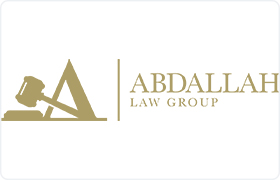Patterson Real Estate Lawyer, California, page 3
Sponsored Law Firm
-
 x
x

Click For More Info:
-
Abdallah Law Group, P.C.
555 Capitol Mall Suite 766 Sacramento, CA 95814» view mapReal Estate Law #1 Sacramento Law Office
Abdallah Law Group is ready to fight for our clients. We provide comprehensive, individualized and affordable legal representation.
800-698-5801
Bonnie Joy Frances Anderson
Real Estate, Divorce & Family Law, Criminal, Business
Status: In Good Standing Licensed: 27 Years
Mark V Connolly
Civil Rights, Personal Injury, Corporate, Real Estate
Status: In Good Standing Licensed: 42 Years
John Michael Dunn
Real Estate, Trusts, Gift Taxation, Business
Status: In Good Standing Licensed: 31 Years
Timothy Alan Byrd
Real Estate, Environmental Law, Employment, Business
Status: In Good Standing Licensed: 37 Years
Jeeni Rae Casey
Commercial Real Estate, Litigation, Lawsuit & Dispute, Credit & Debt, Estate
Status: In Good Standing Licensed: 16 Years
Larry Thayne Cole
Premises Liability, Construction, Divorce & Family Law, Personal Injury
Status: In Good Standing Licensed: 48 Years
 Mitchell Abdallah Sacramento, CA
Mitchell Abdallah Sacramento, CA
